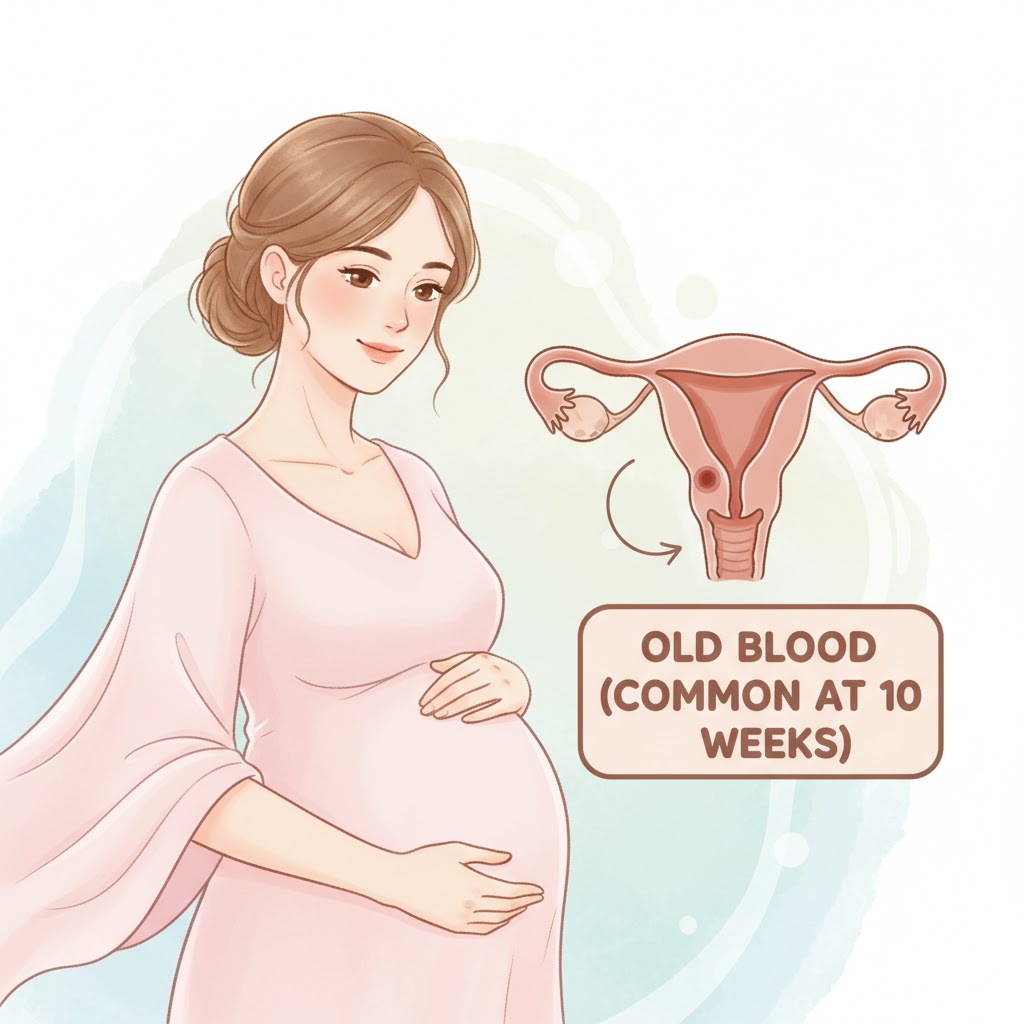So, you’re around 10 weeks pregnant, feeling all the emotions — excitement, nervousness, maybe a bit of worry. Then you notice brown blood. Your heart skips. Is that normal? Or is something wrong? Let’s talk about it gently, like two friends sharing stories over tea.
What Does Brown Blood Mean in Early Pregnancy?
In most cases, brown discharge or brown blood during pregnancy means old blood.
It’s blood that’s been in your uterus for a while and is only now making its way out.
Imagine an old scab that looks darker as it heals — same idea.
Fresh blood is bright red.
Old blood turns brown as it oxidizes.
So, brown spotting at 10 weeks pregnant usually isn’t a reason to panic.
It can be your body’s way of cleaning out old tissue or adjusting to pregnancy changes.
Common Causes of Brown Blood at 10 Weeks Pregnant
Here are some of the most common reasons doctors see this:
- Implantation leftovers – Sometimes, small bits of old implantation bleeding can come out weeks later.
- Cervical sensitivity – Your cervix becomes extra sensitive now. Even a gentle exam or intimacy can cause light spotting.
- Hormonal changes – Shifts in progesterone and estrogen can affect your discharge color.
- Old blood clearing out – Sometimes, your uterus just needs to release what’s been sitting there.
When Brown Blood Can Mean Something Serious
While brown blood is often harmless, it’s smart to stay alert.
Here’s when you should call your healthcare provider:
- The discharge turns red, heavy, or watery.
- You feel cramping or lower back pain.
- There’s a foul smell or tissue in the discharge.
- You have dizziness or weakness.
These could signal issues like threatened miscarriage, infection, or subchorionic hematoma.
Do not panic — but do not ignore it either.
What You Can Do Right Now
If you’re seeing brown blood at 10 weeks:
- Rest and observe. Take note of how much and how often.
- Avoid intercourse until you’re cleared by your doctor.
- Stay hydrated and eat gently — your body is working hard.
- Call your OB or midwife if anything feels off.
Most times, the doctor will check your cervix, do a quick ultrasound, and reassure you.
Real Talk: My Own Experience
When I was around 10 weeks pregnant, I spotted brown discharge for two days. I was terrified — I thought something was wrong. But it stopped as quickly as it came. My doctor said it was “old blood,” likely from my uterus adjusting.
That moment taught me: brown doesn’t always mean bad. But it always means — listen to your body.
How to Stay Calm When You See Brown Blood
Here’s something that helped me:
- Breathe. Anxiety can make every symptom feel worse.
- Talk to someone. Sharing your worry helps you process it.
- Track your symptoms. Write down changes — color, flow, cramps.
- Trust your instincts. You know when something feels wrong.
Quick FAQ: Brown Blood at 10 Weeks Pregnant
1. Is brown blood normal at 10 weeks pregnant?
Yes, often it’s old blood and harmless — but keep monitoring.
2. How long can brown spotting last?
It can last a few hours to a few days. If it’s longer, see your doctor.
3. Can brown discharge mean miscarriage?
Sometimes, but not always. Bright red bleeding and pain are stronger signs.
4. Should I go to the ER?
Only if you have heavy bleeding, severe pain, or feel faint.
5. Does brown blood mean my baby is okay?
In most cases, yes. But always confirm with a scan for peace of mind.
